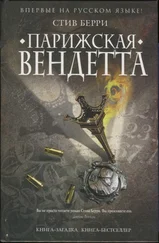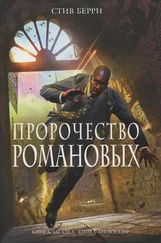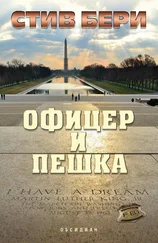She stepped from the podium and, following the advice of her press secretary, did not take questions.
Her words would be her message.
Inquiries could only dilute the impact of her extraordinary statements. Instead a tour was now planned of the camp. She’d be seen at the gas chamber, examining the ovens, and walking among the international memorial. After that, she would leave Bavaria and start a two-day swing through western Germany.
By tomorrow she’d either be the clear front-runner—
Or so far behind it would not matter.
CHAPTER TWENTY-TWO
SANTIAGO, CHILE
11:30 A.M.
Cassiopeia exited the car onto a busy sidewalk. A dazzling pattern of grand buildings rose around her, but thick smog burned her throat with every breath. The Plaza de Armas was crowded with midday shoppers, the city alive with business and activity. The hotel stood three doors down, where a uniformed carabinero guarded the front entrance. Juan Vergara waited patiently in the shade of an elm tree near the curb, smoking a cigarette. True to his word, a plane had come south to ferry her back to the capital. She would handle things on this end, while Cotton dealt with the other.
“Welcome, Senorita,” Vergara said, adding a smile she instantly found more irritating than polite. He stubbed out his smoke on the trunk of the tree. “I see Senor Malone stayed behind. Hopefully, he will have a productive day. Here the body was removed hours ago, but everything else has remained untouched. Awaiting your arrival.”
She followed him inside.
Dust mites hung in the blue shafts of sunlight that spilled in through the dingy front windows. A small sidewalk façade concealed a spacious lobby with tall ceilings and paneled walls, all of it a bit run-down, but in a nostalgic kind of way. A stairway led up to the second floor where another carabinero stood guard at an open door. Just inside a dark splotch stained the hardwood. She noticed its irregular shape and size. Apparently the victim had lost a lot of blood.
Vergara pointed to the floor. “The body was found there, stabbed in the chest, the blade pulled up into his heart. As you might imagine the wound bled profusely.” He stepped over to a rattan chair and grabbed a plastic bag. “This was found beside the body.”
She studied the bloodstained SS dagger.
“Those are certainly not seen every day,” Vergara said. “A unique murder weapon.”
“Any witnesses?” she asked.
“Not that we can determine. Unfortunately, this is an old hotel with no cameras. Time of death was early this morning or late last evening. So far no one has come forward, but the investigation is young.”
She could see that he wanted to ask more. So she volunteered, “We never met the guy. As you know, he was in the personal employ of the chancellor. The plan was for us to connect with him today.”
“Perhaps his dying last night may have been designed to prevent that from happening.”
She agreed. It was possible. “Was anything found here? Notes? Papers? Laptop? Cell phone?”
Vergara shook his head. “Not a thing. Whoever killed him most likely claimed all that, too. Do you plan to explain any more as to what is happening? The situation has definitely … escalated.”
“We will. When we can. You told Cotton that there was something we needed to see?”
“The deceased made some phone calls from this room. We traced them to an apartment across town. That is what you need to visit, but I wanted you to see this first.”
She rode with Vergara to a corner of downtown in the Providencia district. There were lots of quiet neighborhoods, all not far from the city center, most devoid of traffic. Shopping and restaurants dominated, along with a slew of both new and older apartment buildings.
She stepped out of the car.
Autumn leaves rattled like tin along the sidewalk.
Vergara joined her. “Primarily older residents live here. A few blocks away are some of the most expensive former homes in the city, now converted to offices. Many of the foreign embassies are there.”
The five-story brick edifice before her looked like one of the older buildings, but in pristine condition.
A uniformed officer waited at its front door.
“Is your point that this is an expensive place to live?” she asked.
He nodded. “Exactly.”
They entered and climbed stairs to the third floor and an open apartment door, guarded by another officer.
“We are looking for the apartment’s owner,” Vergara said.
“You think the owner is the killer?”
“It is possible.”
“If so, he seems to have left an easy trail to follow.”
The Chilean smiled. “At the moment, we only want to speak with him.”
She surveyed the immaculate surroundings. There was a living room, dining room, kitchen, utility space, two bedrooms, and two baths. Light, cream-colored walls, laminated-wood floors, and a modern décor dominated, with all of the expected appliances and conveniences, including an elaborate built-in stereo system. She caught the impressive view out the windows. “He or she does live well. This is lovely.”
“I checked with the landlord. The owner pays the rent, with cash, on time, every month. He’s lived here for six years.”
“What do I need to see?” she asked.
“This way.”
He led her down a short hall to a bedroom that had been converted into an office with a small desk, sofa, and three glass cases that displayed an eclectic collection of knickknacks.
Several caught her attention.
One, a heart-shaped silver gorget upon which was affixed a gilded eight-point sunburst. Within the sun were an eagle and a Sonnenrad. She knew the sun-wheeled swastika had been a popular Nazi adornment. Beside it lay a bandolier and some gauntlets. On another shelf sat a typewriter, its black metal casing rusted and battered. She noticed the keys. The number row served its usual dual function, the switch activated by the shift key, accommodating common punctuation as a second alternative. But above the 5 was a double sig rune. SS. Quite a specialization.
A porcelain statue sat on the top shelf. Athena in a flowery robe, a column rising from her open palm. She lifted and studied its underside. Two interlocking sig runes were etched into the porcelain, which meant it had been produced by camp labor as part of one of the SS’s collateral industries.
“They’re all obscene,” she said.
“I agree. We’ve been interviewing the neighbors. None suspected the owner of being a Nazi enthusiast. But none had ever been inside here, either.”
She was irritated at his trickling of information. “There has to be more than this for you to bring me here.”
“There is.” And he motioned to a metal filing cabinet. “Everything in those four drawers is war related.”
“You studied them?”
He waved off her question. “A cursory inspection only, enough for me to know you should see them. Please.”
And he motioned for her to take a closer look.
She stepped to the cabinet and opened one of the drawers. Rows of files were packed tight. She slipped out a cluster from the center, took them over to the desk, and scanned through the brittle pages. All typed. Mostly carbon copies. Many contained the seal of the Third Reich. Most were records of financial transactions. Gold transfers. Deutsche Bank, Deutsche Orientbank, Banco Alemán Transatlántico, and Banco Germánico most prominent. Dated from 1942 to 1951.
She studied more of the pages.
Corporations were mentioned.
Siemens. Krupp. Mannesmann. Thyssen. IG Farben. All German entities that supported the Nazi war effort, along with Schweizerische Kreditanstalt, apparently a bank in Zurich that accommodated transfers from those corporations to banks in Chile.
Читать дальше












